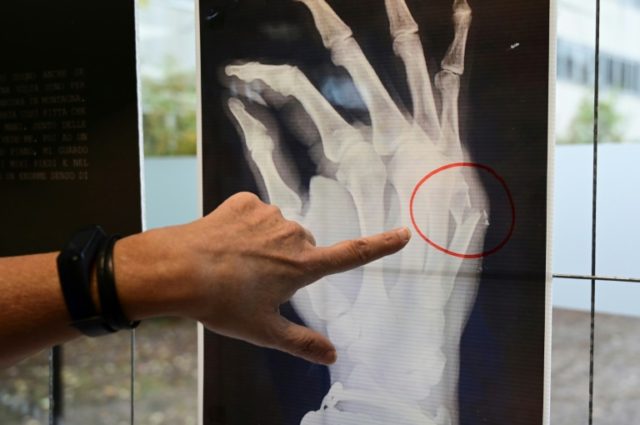More than 300 million Americans have been asked to stay home to stop the spread of the coronavirus, experts who deal with people in abusive relationships warn the practice could create other dangers.
The Law360 website spoke with domestic violence experts about what could happen to people where home is not a safe place to stay:
According to Dorchen Leidholdt, the director of the Center for Battered Women’s Legal Services at Sanctuary for Families, widespread layoffs and the heightened stress that comes with a pandemic “will inevitably lead to an increase in domestic violence.”
“Domestic violence survivors are in greater danger than ever before,” she added.
The danger applies to more of your neighbors than you might realize. An estimated 20 percent of women and 14 percent of men experience physical violence at the hands of a partner, according to data by the Centers for Disease Control and Prevention (CDC). With schools closed, children also face increased exposure to violence.
Compounding the dangers of stay home orders and skyrocketing unemployment are the closures of courtrooms around the country. Natalie Anne Knowlton, director of special projects at the Institute for the Advancement of the American Legal System, said “the dispensation of justice has come to a screeching halt in some states, and at best slowed considerably in others.”
The landscape for people in troubled families varies from state to state, according to the report. In California, only the most “urgent” child abuse and neglect cases are getting heard in court, according to the National Council of Juvenile and Family Court Judges.
And though many jurisdictions are implementing electronic filing options and telephone hearings for protection orders, there is still worry that ‘people might think everything is closed,’” Susan Pearlstein, co-supervisor of the Family Law Unit of Philadelphia Legal Assistance, said in the 360Law report.
“They might not realize hotlines are still running and that you can still get a protection order,” Pearlstein said.
Pearlstein said in Philadelphia court clerks are accepting emailed case documents and judges are available to hear emergency custody and protective petitions.
But no matter where someone who is threatened with violence from a partner lives, staying home could lead to domestic violence incidents because most people wait for an abusive partner to leave the house before reaching out for help.
“If you’re living at home with your abusive partner, just having the opportunity to go online and look this stuff up might be really difficult,” Pearlstein said. “Often abusers take phones or communication away. How are you going to reach anyone?”
Jennifer White-Reid, vice president of Domestic Violence Residential and Legal Programs at the Urban Resource Institute, told Law360 that calls for assistance have actually declined in the coronavirus era and other organizations have reported a similar decrease.
“We will likely continue to see a reduction,” White-Reid said. “Survivors may assess the risks of leaving outweighs the risk of staying in the face of an unprecedented pandemic.”
And even for those who are living apart from their former abusers, child custody and other visitation arrangements could create new conflicts when overriding rules are in place.
“There have been many stories of the noncustodial parent keeping the child at the end of their scheduled visitation, and the custodial parent not allowing visitation with the other parent,” White-Reid said. “This has been happening nationwide.”
“When the pandemic eventually ends, attorneys will have played the largest role in ensuring justice remains accessible to people trapped at home,” Law360 reported.
Follow Penny Starr on Twitter

COMMENTS
Please let us know if you're having issues with commenting.